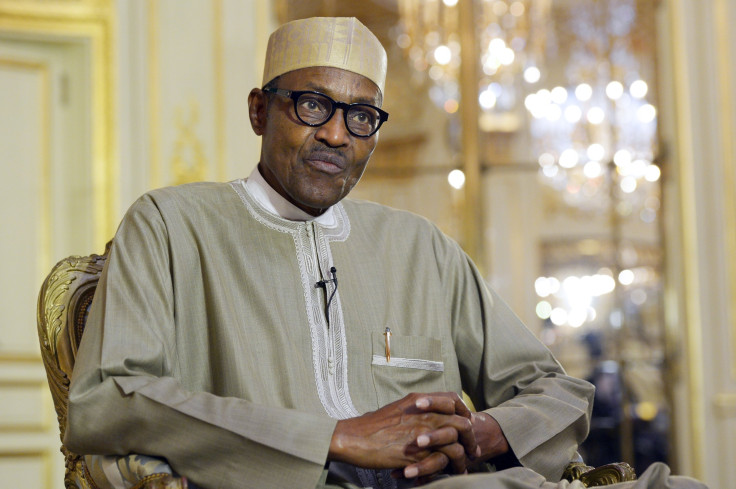Buhari Presidential Media Chat Live Stream: Watch Nigeria's Leader Answer Questions On National Issues [VIDEO]

Nigerian President Muhammadu Buhari is hosting his first presidential media chat in the capital Abuja Wednesday. The former military ruler will answer questions from a panel of journalists on a number of national issues. The presidential media chat will begin at 7 p.m. local time (1 p.m. EST) and will be broadcast live on the Nigerian Television Authority and the Federal Radio Corporation of Nigeria, said presidential spokesman Femi Adesina.
"The presidential media chat will begin at 19.00 hours. Other television and radio stations in the country may hook up to NTA and FRCN to relay the program to their viewers and listeners,” Adesina said in the statement Wednesday, according to local media. The presidential media chat can also be watched via live stream below or listened to live on Radio Nigeria.
<iframe width="560" height="315" src="https://www.youtube.com/embed/ANM-dq5USTc" frameborder="0" allowfullscreen></iframe>
Buhari is expected to discuss the battle against the Boko Haram insurgency, the state of Nigeria’s struggling economy, unemployment and his campaign against corruption. Since taking office in late May, Buhari has vowed to defeat Boko Haram. The extremist group was the deadliest terrorist organization in 2014, according to the Global Terrorism Index published by the Institute for Economics and Peace, a global think tank headquartered in Sydney.
Since launching its Islamic insurgency in northeast Nigeria six years ago, Boko Haram has killed about 20,000 people and displaced more than 2 million. The Sunni extremist group expanded its rampages into neighboring Cameroon, Chad and Niger this year and has ramped up attacks in Nigeria since Buhari took office. Boko Haram, which pledged allegiance to the Islamic State group in March, seeks to establish a caliphate governed by Islamic law, aka Shariah.
Buhari has also placed diversifying Nigeria’s oil-dependent economy and revamping the corrupt oil sector among his top priorities. Nigeria, Africa’s largest economy and oil producer, is facing its worst economic crisis in years. The West African nation has suffered from an almost 60 percent plunge in crude prices since June last year, along with chronic oil theft and corruption. The oil industry provides more than 90 percent of Nigeria’s foreign-exchange revenue and about 70 percent of government revenue.
The scale of corruption within Nigeria’s state-run oil company was revealed in a report published in August by the National Resource Governance Institute, an international governance watchdog in New York City. The report alleged the Nigerian National Petroleum Corporation had increasingly stolen large sums of money from the national treasury. The company, which did not respond to requests for interviews, allegedly withheld about $12.3 billion from the sale of 110 million barrels of oil over 10 years.
Earlier this month, Buhari declared that job creation will also remain one of the top priorities in his administration’s economic agenda. A new report by Nigeria’s National Bureau of Statistics said the number of citizens without jobs hit 104.3 million in the third quarter of 2015. Rising youth unemployment has been a particular area of concern because Boko Haram draws its members mainly from disaffected, jobless and uneducated young men.
“One of the focal points of this administration is job creation. Job creation will help in the achievement of other objectives of the government such as poverty reduction. Insecurity cannot be divorced from unemployment and poverty because an idle mind, they say, is the devil’s workshop,” Buhari said on Dec. 12 while visiting Kaduna state, according to the NTA. “This administration will ensure that youths in the country are gainfully employed and youth restiveness curtailed. ”
© Copyright IBTimes 2024. All rights reserved.





















